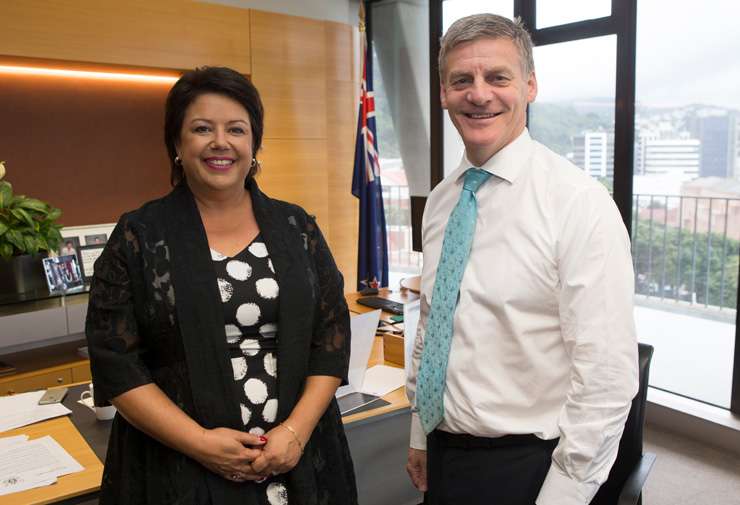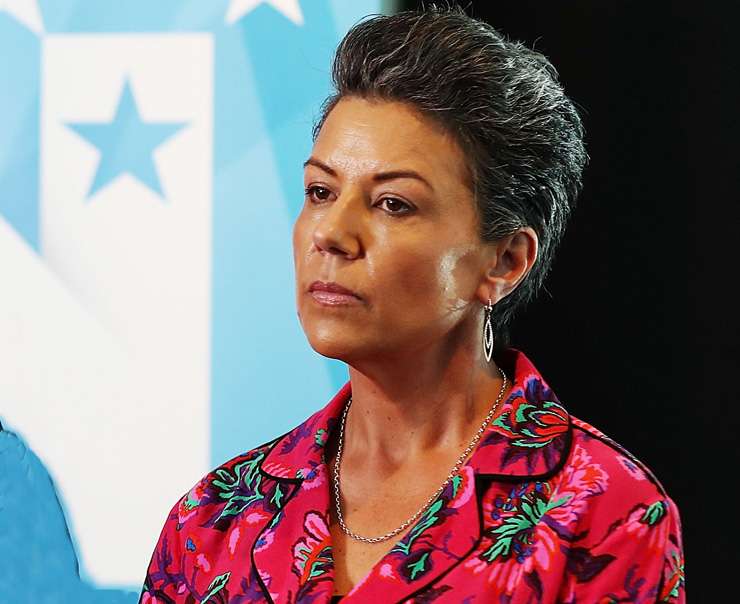Paula Bennett facilitates property deals for some the country's richest people. Once the deputy Prime Minister, Bennett is now the National Director of Customer Engagement and Advisory for Bayleys Real Estate. She talked to OneRoof about what that entails.
Q: You have quite the title there, what do you do?
I mainly work in the commercial real estate sector but now I do also crossover into residential for the ultra-high net worth, or that private wealth, as well, which is really interesting and something that I love doing.
I work with Knight Frank [a global real estate consultancy which partners with Bayleys] across the world. I'm on fortnightly calls with them.
Start your property search
I help clients not so much navigate but look at what they're wanting to do, what they're projecting to do over the next 12 months and then making sure that I'm connecting them into the right part of Bayleys to ensure they get the level of service they need and deserve.
Q: The Knight Frank Wealth Report 2022 predicts New Zealand will have the highest growth in Ultra High Net Worth Individuals (defined as people with net assets of US$30m or more) for the 10 years to 2026 – why is that?
I think it's a combination of things. I think there's been a lot of opportunities in New Zealand for those that have got money that can go quickly, that are able to then generate funding around the sort of property transactions that they want to do.
Most of who I work with are New Zealanders. Most of them are in property development, or they've made money elsewhere and have gotten involved in property. That can cross from anything really, from hotels to big land and housing developments to commercial buildings in the city centres.
Q: Can you say anything about the ultra-high net worth people you deal with?
No, not really. From my Government background I can tell you that they are smart and they are literally designing our landscapes. It feels to me that too often we as the public give them a hard time. I think the risks they take and the passion and the interest they bring to what they are trying to create in their cities and their towns is pretty extraordinary.
They are often years ahead of what we think we need and where we're going so they have to be deeply connected throughout the world and what the trends are and where it's going. They think a lot about what-does-the-future-of-workplace look like. They understand design and how that's going to work.
Many, those that are really thriving at the moment, have been incredibly smart usually for decades and so they know where to act and how to, but also they are putting at times tens of millions and even hundreds of millions on the line on a project. I don't think they are given the consideration for that, and they get on and do it and I think we are better off for it.

Bennett with Bill English in 2017, when she was Deputy Prime Minister and he was Prime Minister. Photo / Mark Mitchell
If you look at the bigger developers in Auckland, in particular, they have a portfolio, they have a plan, they know what they are looking at over particularly the next 12 to 24 months. They know what they will act on quickly and what they won't, so if a piece of land, for example, or a particular building that's in a particular spot, comes up they are generally able to transact that because they've got the funding, or access to the funding, and can literally be making decisions within a couple of weeks.
Q: What are they looking for in their residential properties?
Discretion is obviously really important to them. What they are looking for is something that's a bit exceptional and in general that means that it gives them privacy, it gives them the level of high standard that they are looking for and that they expect.
That might be both a combination of their main home and then looking at other parts of New Zealand that they would be interested in living in as well. Equally, they might be looking at homes overseas. That's quite real for people.
I think in these tumultuous geopolitical times it's quite interesting that people are going 'well, actually, we do think we live in the best country in the world but if we can afford it should we be looking at purchasing property overseas as well.
We've just been through the strangest of times with the pandemic and some of them are kind of thinking 'well, if something happened is there somewhere else in the world that might equally be safe and be somewhere to bolthole. And, of course, that happens in the reverse, that we've obviously got people who want to live in New Zealand because they see us as that safe option and wanting to have other options if something did happen.
I've also discovered that there are some people of ultra-high net worth who have the luxury of having some quite nice eccentric views, shall we put it that way. They've got the luxury of being able to think of every scenario and perhaps being able to adapt to it.
Q: What are their main concerns?
They're actively engaged in the politics of the world and what's going on. They understand the significance of our own trade relationships, what's happening with China, where the US is at, obviously what's going on in Ukraine at the moment, and then they're usually very actively involved in what's happening politically in New Zealand as well.

Bennett at a National Party conference. She says she spends a lot time explaining how government works. Photo / Getty Images
Of course, they always want to talk to me about New Zealand politics as you can imagine, just because of my own background. They are all interested in how we make sure that all New Zealanders are doing well. The sort of rhetoric, that they've got money, that they're only interested in protecting and doing well for themselves, I find the complete and utter opposite. What they probably speak to me more about is what can we be supporting that keeps kids at school, or, is there something that can genuinely get in there before some of these young people start committing crimes.
They are usually very frustrated with Government across the board, and that can mean any political party. I do spend quite a lot of my time trying to explain how Government works because I don't think that outside of Wellington, people really understand the sort of complexities of decision-making and how money is spent, and that disconnect is really real. For them, often it's that frustration level of how they can get change faster and what they can do to help that happen.
Q: So they are concerned about inequality?
They are very, very concerned that there are New Zealanders that have been left behind and that in general is not the country they grew up in. I shouldn't speak for them but I would argue that they are sort of saying, “Well, how do we pull others up.” You know, like, “We're not the enemy here, how do we pull people up?”. There are ways of doing that and they are genuinely engaged, and, I tell you what, most of them are giving philanthropically a lot of money.










